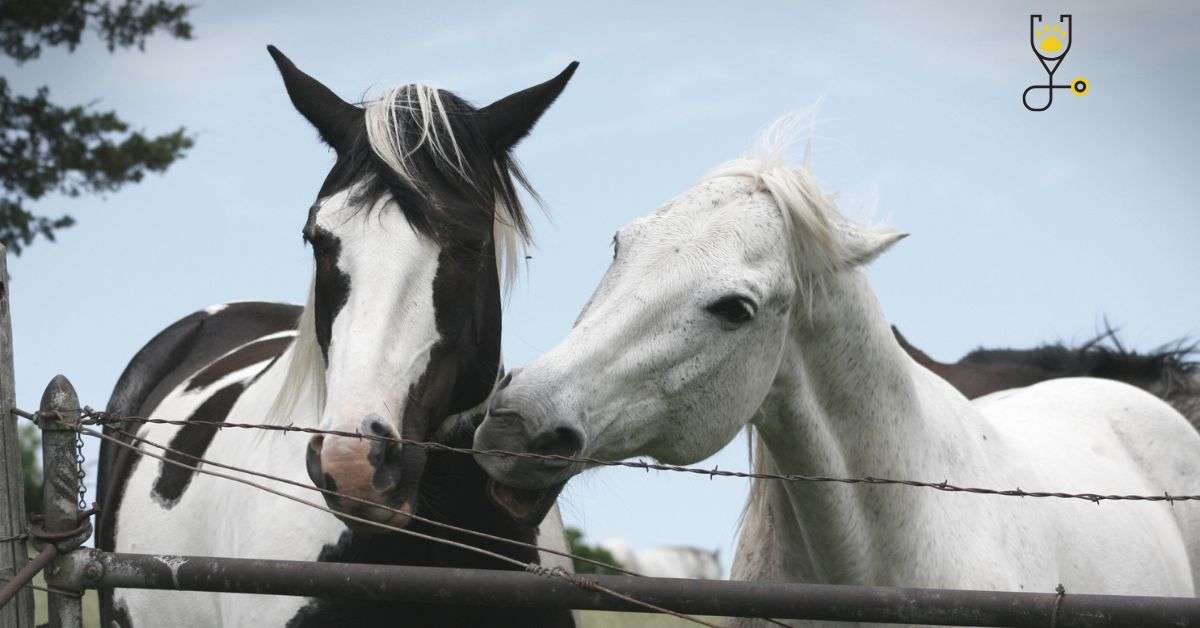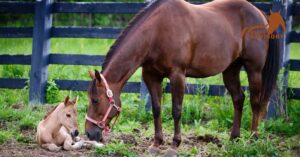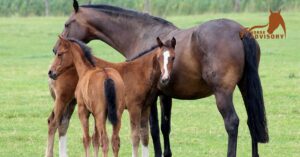If you have a horse that likes to bite, you’re not alone. It’s actually a pretty common issue. But just because it’s common, doesn’t mean it’s easy to solve. In fact, stopping a horse from biting can be quite challenging. Thankfully, there are some things you can do to make it easier. In this post, we’ll discuss the most common causes of biting behavior in horses and provide some tips for how to stop it. So if your horse is giving you a hard time, read on! You may find the answers you need here.
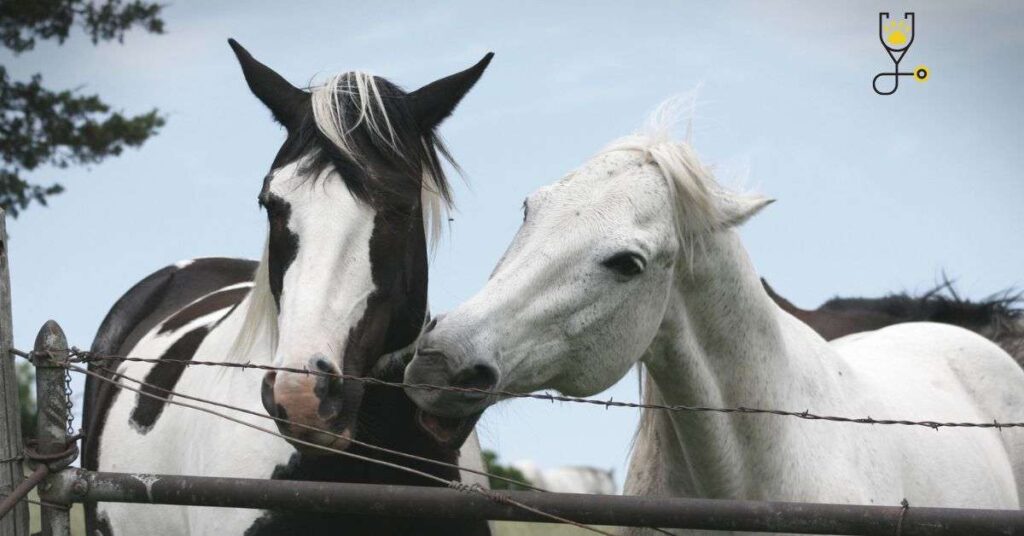
Why Do Horses Bite?
While horses are generally gentle creatures, they do sometimes bite. There are a variety of reasons why a horse might bite, including play, defense, hunger, discipline, and frustration. While there are some common reasons behind it.
Learn More About Horse: The Ultimate Guide To Ownership & Care
Aggression
One of the most common reasons behind biting behavior is aggression. Horses can become aggressive for a variety of reasons, including fear, pain, and territoriality. If your horse is acting aggressively, it’s important to get to the root of the problem and address it accordingly. Otherwise, the biting behavior is likely to continue.
Read More: Why Your Horse Is Tossing Its Head
Fear
Fear is one of the most common triggers for aggression in horses. If a horse feels scared or threatened, it may bite in an attempt to protect itself. This is often seen in horses that are not properly socialized or have had negative experiences with humans. If your horse seems fearful, it’s important to work on building its trust and confidence.
Allogrooming
Allogrooming is a common behavior in horses, and it’s actually considered to be a sign of affection. Horses will often groom each other as a way of bonding and showing love. However, if a horse feels threatened or uncomfortable, it may bite instead of groom. This is often seen in horses that are not used to being around humans. If your horse seems to be allogrooming you, it’s important to be gentle and patient.
Frustration
Horses can become frustrated for a variety of reasons. For example, if a horse is bored or doesn’t have enough to do, it may start biting. This is often seen in horses that are kept in stalls for long periods of time. If your horse seems frustrated, it’s important to provide it with more enrichment and exercise.
Read More: How to Calm a Nervous Horse
Hunger
Another common reason for biting is hunger. If a horse is not getting enough food, it may start biting in an attempt to get attention. This is often seen in horses that are not being properly cared for. If your horse seems hungry, it’s important to make sure it’s getting enough food and water.
Discipline
In some cases, biting may be a form of discipline. For example, if a young horse is biting its mother, she may bite back in order to teach it not to do that. This is actually a normal and healthy part of horse development. However, if you’re being bitten by your horse, it’s important to nip that behavior in the bud.
Learn More: Horse Training: When Is Discipline Abuse?
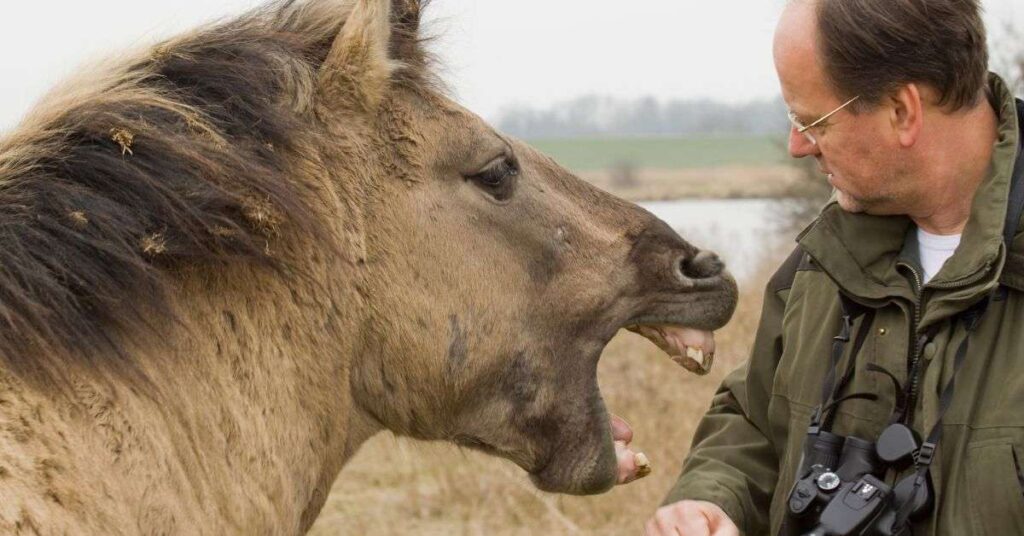
Tips for Stopping a Horse from Biting
There are a few things you can do to stop a horse from biting.
The following tips can help you stop a horse from biting:
- Identify the reason for the behavior.
- Be consistent with your discipline.
- Provide enrichment and exercise for your horse.
- Reward your horse for good behavior with treats and plenty of praise
- Be gentle and patient with your horse.
Identify Problem: First, it’s important to identify the reason behind the behavior. Once you know why your horse is biting, you can address the issue accordingly. For example, if your horse is biting out of fear, you’ll need to work on building its trust and confidence. If your horse is biting out of hunger, you’ll need to make sure it’s getting enough food and water.
Consistency Matters: Second, it’s important to be consistent with your discipline. If you allow your horse to bite once, it will likely try to do it again. So if you don’t want your horse to bite, you need to be consistent in your discipline. This may mean using a negative reinforcement such as a lunge whip or noise maker.
Give Proper Exercise: Third, it’s important to provide your horse with enrichment and exercise. If your horse is bored or doesn’t have enough to do, it will likely start biting. So it’s important to provide your horse with things to keep it occupied. This may include toys, puzzles, and other forms of enrichment. It’s also important to make sure your horse is getting enough exercise. A tired horse is less likely to bite than a horse that is full of energy.
Give Rewarding Praise: Reward your horse for good behavior with treats and plenty of praise. This will help reinforce the behavior you want to see. Be sure to give your praise immediately after your horse does something you want it to do. This will help it understand what it did that was correct.
Be Patient: Fifth, it’s important to be gentle and patient with your horse. If you’re rough with your horse, it will likely respond by biting. So it’s important to be gentle and patient, especially if your horse is allogrooming you.
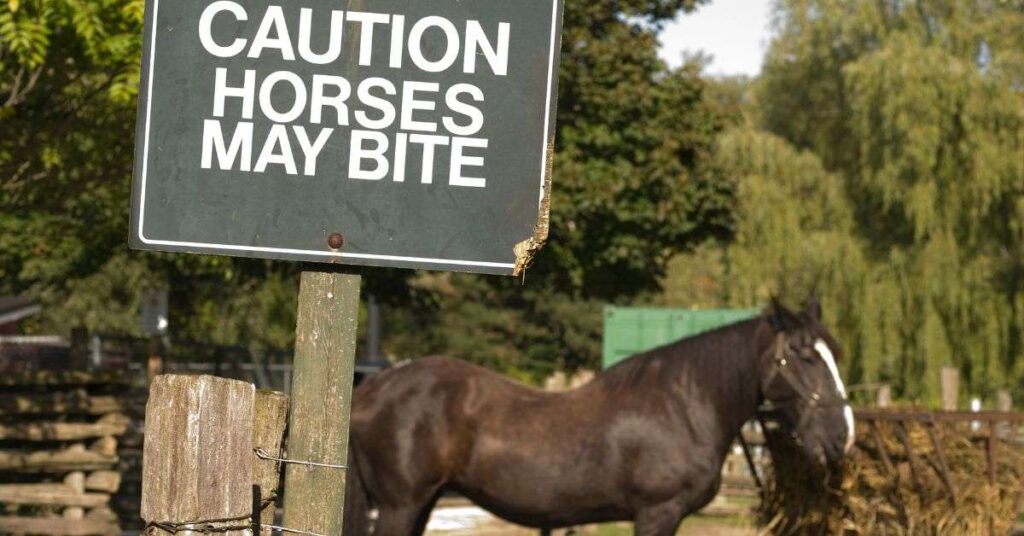
Seek help from an expert if the problem persists
Finally, if you’ve tried everything and your horse is still biting, it’s important to seek help from an expert. A qualified trainer or behaviorist can help you identify the root of the problem and find a solution.
If you’re having trouble stopping your horse from biting, it’s important to seek help from an expert. A qualified trainer or behaviorist can help you identify the root of the problem and find a solution.
Read More: Would Your Horse Make a Good Therapy Horse?
Final Thoughts
Biting is a common behavior in horses, but it’s important to nip it in the bud. There are a few things you can do to stop a horse from biting, including identifying the reason for the behavior, being consistent with your discipline, providing enrichment and exercise, and rewarding good behavior. With patience and consistency, you can train your horse not to bite.
